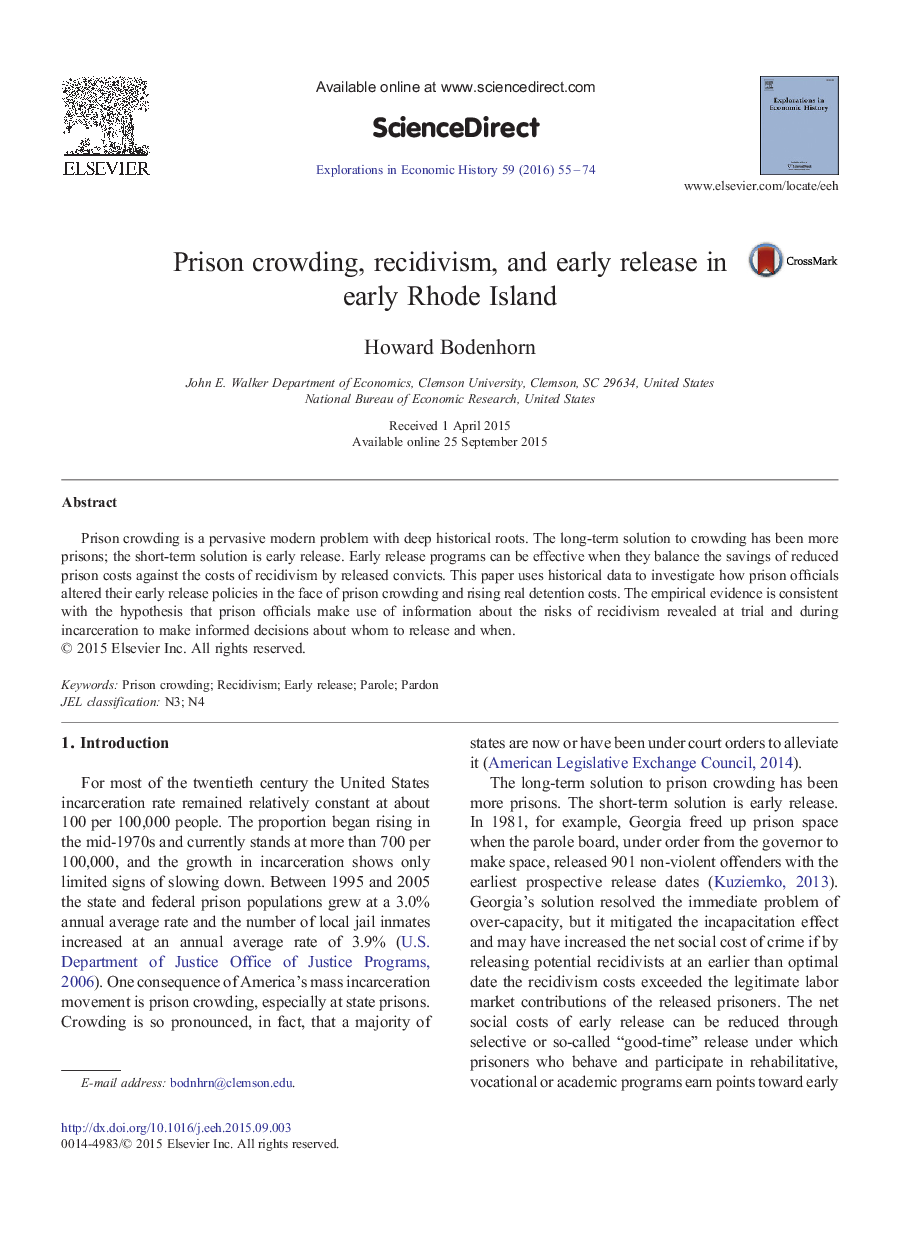| Article ID | Journal | Published Year | Pages | File Type |
|---|---|---|---|---|
| 5068737 | Explorations in Economic History | 2016 | 20 Pages |
Abstract
Prison crowding is a pervasive modern problem with deep historical roots. The long-term solution to crowding has been more prisons; the short-term solution is early release. Early release programs can be effective when they balance the savings of reduced prison costs against the costs of recidivism by released convicts. This paper uses historical data to investigate how prison officials altered their early release policies in the face of prison crowding and rising real detention costs. The empirical evidence is consistent with the hypothesis that prison officials make use of information about the risks of recidivism revealed at trial and during incarceration to make informed decisions about whom to release and when.
Keywords
Related Topics
Social Sciences and Humanities
Arts and Humanities
History
Authors
Howard Bodenhorn,
